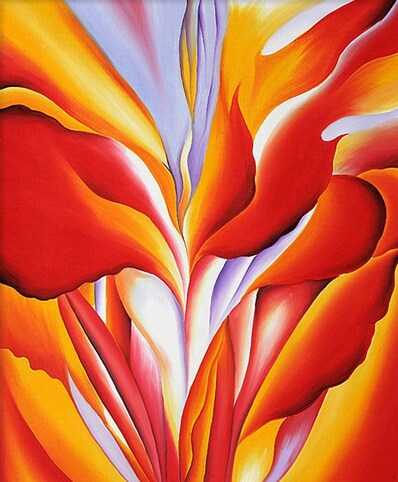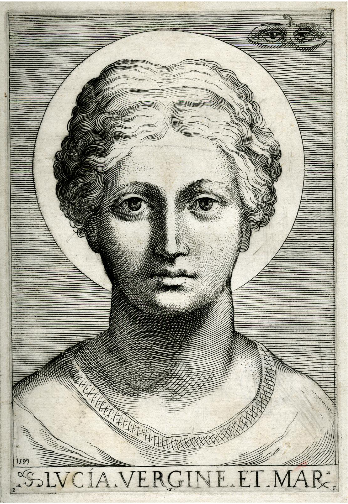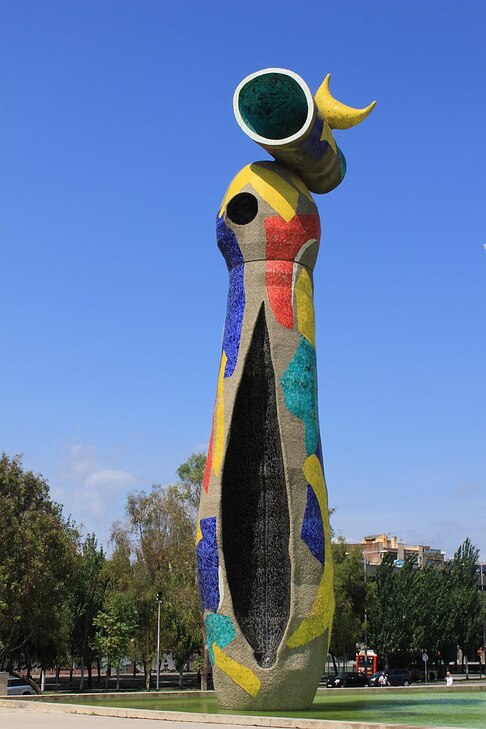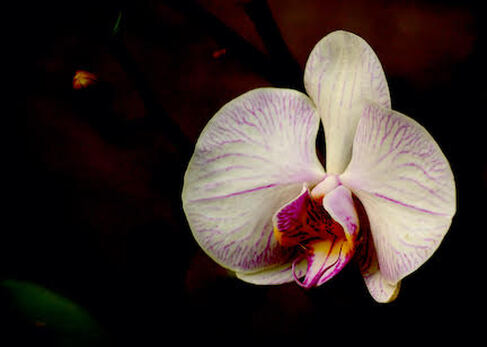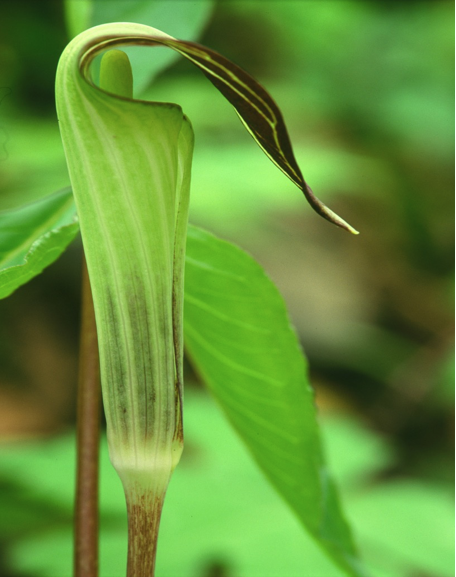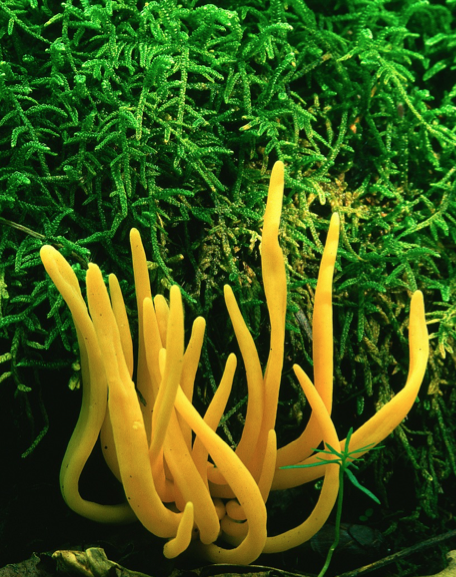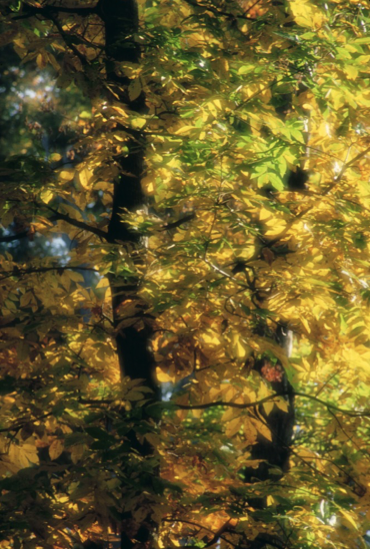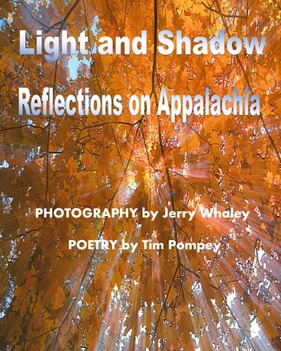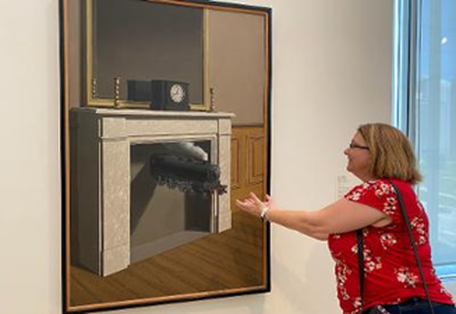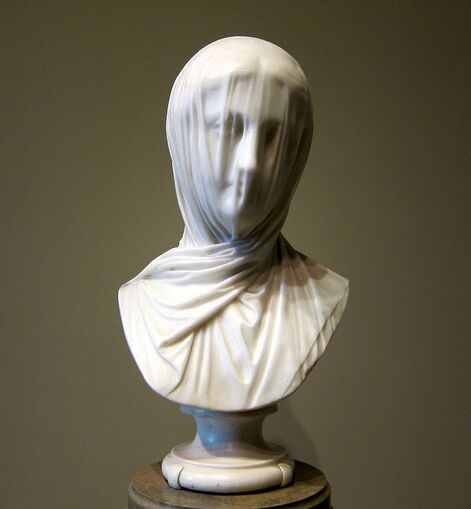|
Paper-Thin Left outside, the flowers keep their colours, and woody-brown leaves surround, as petals face skyward. She admires the shades from above, turns back to the balcony, where useful tools are left about, from left to right, the rakes and spades, embraced by bright white doors, no pottery to catch the flaking paint. She fills a teacup with seeds, kneels to pick some sage and parsley from the slate, inert. Left outside, the old fountain is full of dead leaves, they circle in blinding light, but she knows no water will ripple them back to life, and climbs back in. The house has grown silent since he left, windows still wide open, the pink bougainville he surprised her with, as if to ignore another season. She might leave more dates open in her diary, all of promises behind. How proof turns paper-thin, once spoken later. She picks at the oilcloth on the table, follows the strange wavelets, unearthly colours, and pictures him, riding the bus down Corrientes, where plane trees preserve the turns of a river, a turning of life, now she is left with this hiding house, running down her short nights, the long, long days. Come and contemplate over tea, she will need new curtains and other illusions of change. Kate Copeland Kate Copeland started absorbing books ever since a little lass. Her love for words led her to teaching & translating; her love for art & water to poetry…please find her pieces @The Ekphrastic Review, Poets’ Choice, First Lit.Review-East, Wildfire Words, The Metaworker, The Weekly/Five South, New Feathers, AltPoetryPrompts a.o. Her recent Insta reads: www.instagram.com/kate.copeland.poems/ Over the years, she worked at literary festivals and Breathe-Read-Write-sessions, recent linguistic-poetry workshops were via the IWWG (more workshops in the making). Kate was born @ harbour city and adores housesitting @ the world.
0 Comments
I Grow Extra Ovaries while I sleep, dream of surplus bicycle wheels spinning, mitochondria sworls, and how I'll need to compensate. I'll mark myself with plastic slinkies, knock-offs of metal originals, push-pin spirograph wheels on a board, then rotate. Am I to blame for disfunction, grapefruit-sized cyst occluding one ovary? Was it the Alaskan cruise years ago, dolphins leaping ahead of the bow, or maybe too much backstroke or how water has always sorted me out and I'm paying a price? Now I'm instructed to complete a lab, early cancer warning just to make sure. At night I hold my abdomen, pregnant-like bulge. Plunged into dreams again, I call out Highwater from a ship's prow. Early warning to the Pacific Ocean on the voyage north, then inside the ship run past the bar to pilfer pretzels, hike the backcountry at ports of call, as far as I can go into Three Sisters wilderness. My friend says she doesn't know how much time she has left, but don't we all feel that way when called to the surgeon's table. I bestow an award for distinguished service to humanity on my original two arteria ovarica, wrap my shoulders in black crepe, place a mantilla over my head, and underneath, tight bodice and full skirt, to present arched branches to my beloveds. Laurel Benjamin Laurel Benjamin is a San Francisco Bay Area native, where she invented a secret language with her brother. Her work overall holds themes of family and sibling connections, a journey, nature, environment, extinction, curiosity and the idea of actual versus alternate life. There is loss in what is not said, unspoken and connected to, for example, the mother and the idea of mother. She is affiliated with the Bay Area Women’s Poetry Salon and Ekphrastic Writers. She is a reader for Common Ground Review and has featured in the Lily Poetry Review Salon. Georgia O’Keeffe & the Opening This is a painting of a flower, up close. The petals are the colour of sun setting over mountains, element bleeding into element. Land / water / space. Contrast in the desert, a place I have never been. The thirst of it. * Once a friend asked me what it feels like. I don’t know, I told him. It feels like if you find yourself in the right place at the right time. If you find yourself at a party in love, or lust, either is worthy, I think. If you look across the room and you meet their eyes and you find pleasure in the tethering process, the tension. If you like the experience of being fully tongue tied. When you no longer want to stand up straight, and you no longer have to. It feels like slow and wild pressure / presence /like being known. But I don’t think this answered his question. * I have gravity, and you are in my orbit. When was the first time I realized I had this? I don’t know, really. Can’t remember. I spin slowly, with intention. Let me reel you in. * If you have to ask the question of why, why it was necessary for me to write this. Then you’ve already answered your own question. * Her husband took black and white photos of her hands, sewing, on dark coloured satin. She makes one hand like a spiral, each finger curled around the place where the needle enters. The other grasps the material slightly and waits, middle finger protruding and capped with a thimble. And this is how I know I want someone. I keep looking at their hands. * I think you should say the words. All of them. I think you should say them into my ear, now. I will protect you from your shame. We can take it off together / the careful way you take off your coat. * Georgia O’Keeffe said that her paintings were flowers, and only flowers. In the early 1920s, her work was being reviewed exclusively by men, who wanted to see something sexual, she thought. She felt that women critics would take the subject matter more seriously, less anatomically. * I feel that the paintings are not of flowers or vaginas, but of opening. And opening is a serious matter. Katy Scarlett Katy Scarlett is an educator, nonfiction writer, and poet from New Jersey. She earned her MFA in creative writing from Virginia Commonwealth University and her MA in art history from Hunter College, CUNY. Katy's writing is published or forthcoming in Blackbird, Michigan Quarterly Review Online, Hunger Mountain Review, CRAFT, Cimarron Review, and elsewhere. The Virgin Martyr Speaks Syracuse, Sicily, 304 CE I was born at dawn and Mother named me for the light. That’s where my hagiographers begin, but I will tell you something else, I’ll tell you of the three times men angered me with their comments on my eyes. The first was while I was still a pagan, when I tried to journey to my beloved Agatha: As a child, I had played in the garden with other girls, among the quinces and bitter oranges. Now, at fifteen, I was the only maiden left, for the others had married. I had evaded betrothal because Father was dead and Mother too ill to arrange my marriage, but I knew this reprieve wouldn’t hold; I was an only child, my patrimony so large that the suitors would soon overcome Mother’s inaction. Their impending arrival felt like rising waters. In my loneliness, I lurked in the kitchens among the servants, listening to their gossip about the mystery cults. So did I learn of Saint Agatha, a high-born maiden who made a secret vow of chastity, how the governor persecuted her, how the earth shook at the moment of her martyrdom, how Etna erupted and Agatha’s veil shielded the faithful from the lava’s flow. I resolved to travel by sea to her tomb in Catania, where she worked miracles. With my nurse, I slipped out of the villa. I went down to the landing and saw that many boats were there, I offered coins but the ferryman refused to convey me. What beautiful eyes you have, he said. It was an impudent comment, a warning my request was unseemly. For the first time, I wished to blot out my eyes, a wish that felt as hot and red as lava. The second time was like this: Unseemly longings continued to roil within me, and I met the Christians. One night I snuck to the shore, immersed myself in the sea and was born from the water as a bride of Christ. But when I visited Mother’s sickbed to reveal my conversion, she said she had betrothed me to the prefect’s nephew. Mother required me to stroll in the garden with the boy. He pressed a betrothal medallion into my hand and the cold metal revulsed me. The boy chattered vainly of expensive horses, then said Venus had blessed me with comely eyes. The same wish came back to me, this time cool and hard as metal. I thought how if I stabbed my eyes out, the benefit would be twofold: I would no longer see him and he would recoil to see me. The third time was when I became immovable: Mother was pragmatic – she didn’t respect my Christianity as an objection to marriage, but she suffered greatly from the bloody flux and was open to any prospect of healing. I convinced her to take me to Agatha’s tomb to ask for a cure. In Catania we prayed and wept together on Agatha’s sepulcher, many hours, until the other pilgrims had departed and only we two remained, beseeching, veiled in night. I fell asleep upon the tomb and Agatha came to me. I quaked at the sight of her, I felt engulfed in her light. I closed my eyes but still I saw her. She called me sister. Devout virgin Lucy, she said, why are you asking me for what you yourself can obtain? When I woke, Mother was healed, and I felt terrified. The bright blaze of Agatha’s holiness had shown me what I must do to become immovable: destroy my family’s riches, for inheritance and wealth are the greatest blots upon the soul. In her joy at her restored health, Mother did not object. I sold my jewels, my embroidered garments and my lands, acting with haste, for I sensed my life would be short. All of it I made alms for the poor, all but my hateful betrothal medallion, which I pitched into the sea. For three years my riches dwindled and my soul grew immovable. But the servants’ gossip carried word of my actions to my betrothed, who saw his future horses galloping away, transformed into morsels of bread in the mouths of the poor. This so enraged him that he denounced me before the court. The judge was mild at first, he had known my father and respected my family. But this initial indulgence made his fury all the greater when I proved immovable. When I refused to worship the emperor, the judge commanded the town ribalds to haul me to the bordel and defile me. But I was a tree planted by the waters and they couldn’t move me. They yoked oxen to drag me there, but I became so heavy that no oxen could budge me. So the soldiers built a fire to burn me, they cast pitch and resin on me but the flames would not catch. The judge was so tormented by my acts that he began to rant, and he sneered about my pretty eyes. This was the third time a man had infuriated me with such remarks. Then my eyes were gone but the light was not. A soldier ran a sword through me. The water of death was deep and wide, and I could stand on one shore and see myself from the other side. * My body will become bones, conduits of miracles. Men will carry my relics on boats: to Constantinople alongside Agatha. To Venice where the gondoliers sing of me. Home to Syracuse. We will hover, my eyes and I, on both shores at once, in the waters between. When the artists paint me, they will restore my eyes and double them. My statues will serve my eyes up on a platter, bloodless and lolling like grapes. Bloodless, too, is the word chroniclers will choose for my eyes’ fate: plucked. I took my own eyes, I seized a soldier’s knife and gouged them away. Agatha, they were only made of water, not light. Jane Yager Jane Yager is a Berlin-based writer and translator who grew up in small-town California and holds a master’s degree in religious studies and cultural anthropology. Her writing has appeared in publications including the Times Literary Supplement (TLS), the Paris Review Daily, The Awl, and The New Inquiry. Parc de l'Escorxador The bulls are happy in Barcelona and you too seem happy feeding the old culvert bird, brightly feathered, shining in our sun. Your misplaced meatus eye watches shoppers in the bullring, doubting nothing. Everything's vale. Even the grass will green again when the drought ends and it will end, won't it? My son takes a stab at your name: the grappling hook? El gancho de agarre. A clear appeal to climb you, hand over dry, hot tile until the disappointing banana points him toward the vast hours of fun ceded to history and architecture, the oppressive heat, and his dad eating everyone else's dessert with more relish than duty. Brian A. Salmons Brian A. Salmons lives in Orlando, Florida. He writes essays, poems, and plays, which can be found in Qu, Marchxness, The Ekphrastic Review, Autofocus Lit, Stereo Stories, Memoir Mixtapes, Arkansas International, and other places. He's on IG @teacup_should_be and X/Twitter @brianasalmons.
This poem was also based on a parable told by Jacob ben Wolf Kranz, the Dubner Maggid (d. 1804).
Norbert Hirschhorn is a public health physician, commended by President Bill Clinton as an “American Health Hero,” proud to follow in the tradition of physician-poets. Hirschhorn has published seven previous collections, recently a bilingual Arabic-English co-translation with Syrian physician-poet Fouad M. Fouad, Once Upon a Time in Aleppo, Hippocrates Press, London, 2020. His latest collection, Over the Edge, was published in 2023, by Holland Park Press, London. A new collection of prose poems is in development. Moth Orchid at the Botanical Gardens The grammar and language of art can be taught, but it is quite different with its poetry. Henry Peach Robinson, Idealism, Realism, Expressionism, 1896. I don’t know why this morning matters, awake so much of the night worrying over what loves me, what not. I only opened a tiny slice of the camera’s aperture, so caught by the orchid’s pink lip, its quill curl, its petals half-swerved as if a moth, white as the common cabbage butterfly I’ve known, eased through the air. “Gorgeous,” my friend wrote, the orchid digital I sent him, called Moth, a crater in the pixels, all illumination in the hot house background of the botanical gardens I mused and blacked until I could orchestrate the photograph into something other than Moth, maybe, moon or, better yet, the teeth from the remains of the six-year-old the anthropologists call Naledi, little star. The enamel’s like ours, but the child is not quite human in some eyes, her child pearls fixed deep into the earth on a cavern ledge, arrayed there 20,000 years ago by what we don’t know. Now this century, a small woman’s hand has plucked Naledi’s teeth from the earth, from this cave called Rising Star. Maybe it was some earth fracture the child catapulted through- or, maybe better, mourned, she was ferried down the stone maze in love. The orchid barely kindles by seed, but even it is not omnipotent. Too dark for this, I think, to tell the myth of a boy dismantled rib by rib into an orchid flower that feeds upon the air. I remember how I dialed the camera’s exposure back as if I would take the picture wrong, adjusted shadow and contrast until a satellite bud leaked out beside its moth moon. There is a moth I’ve heard of that gathers to the cavernous dark and not to light, tissue its wings that plummet into dreams and half-histories. Oh, this story is too complex now: a cabbage moth riding out the dark that I composed and a “flower moon” a hundred million years old dusting me with feather seeds I cannot see. The moth orchid breaks into pieces and birds fly them to root in lonely places. Or they plunge into everything I think beautiful. Kathryn Winograd This poem and photograph will appear in Kathryn Winograd's book, This Visible Speaking: Catching Light Through The Camera’s Eye (Humble Essayist Press) March 2024. Kathryn Winograd is a Colorado photo and poetry geek whose doodle spends much of its time with her traipsing along rivers and through mountain meadows to find the images that spark memories and poems. Her poetry has been published in journals as disparate as The New Yorker and Cricket Magazine for Kids and has won the Colorado Book Award in Poetry. “Retired,” Kathy has taught poetry for over 45 years (Yikes) to everyone from wide-eyed four year olds to Supreme Court judges and MFA graduate students. Light and Shadow: Reflections on Appalachia- Poetry by Tim Pompey After Photography by Jerry Whaley2/3/2024 Jack Prepares to Preach What word do you bear, Reverend Jack? Reticent as you are under your hood like we the congregants are not ready. But you cannot hide from us. You bear Moses’ staff and Elijah’s mantel. You stand prepared amidst all this greenery. For this moment we have waited. Behold us, desperate for faith. Thirsty for the verdant Word. Stand tall. Your father anoints you. From the pulpit, speak. Let Shekhinah shine forth. We are attuned to you in this sacred forest, O, most holy prophet. One word we ask. Truth. In Search Of Tendrils raised looking for . . . what? Sunlight? Air? I think they search for something instinctive. Water. Life. God. Arms raised. Fibers roused. Orange flashing. Something in plant and animal is in need of finding and being found. A place in their universe. A place in mine. The answer to the question: Who am I? We are joined together. Brothers in arms. Sisters seeking. One cell to another. DNA meshed. Primordial purpose. Trees Ablaze Who set this fire? My eyes captured, the leaves shimmer as if angels dance. The spirit of the flame ignites in liturgy. The cantors madly swing their thuribles. I would gladly throw myself in the flame and let my ashes smoke toward heaven if I knew these trees were possessed. Who brings this fire? Within the river birch, Virginia pine, dogwood, sweetgum, and scarlet oak, each needle and leaf offers kindling. It’s been this way a thousand years, sun and moon combusting in a radiant inferno. With me, they share a spark. Against this radiant reverence, my hands are incendiary. Tim Pompey These poems and photographs are from Tim Pompey's and Jerry Whaley's collection, Light and Shadow: Reflections on Appalachia. Tim Pompey is a writer, musician, and poet living along California's Central Coast. His previous art, photo, and poetry collaborations include Imaginaria and Photosynthesis. Jerry Whaley is an East Tennessee writer and photographer with over forty years of experience photographing the Southern Appalachian Highlands region, which includes the Great Smoky Mountains. Catching a Train in Chicago (for Matthew Wolfe) “Something about my PD hates crossing thresholds.” Michael J. Fox Time, in Magritte’s painting, remains transfixed, stalled at 12:43 on the mantle clock, frozen, like a man between doorways whose feet itch for locomotion but no longer obey him. Stalled like time on the mantle clock, perplexed, I think of your need to pay constant attention, like when speech no longer obeys, has you vexed; not being able to gauge speed, or execute intentions. It must be a life of constant agitation, a quickening of pace, a shortening of stride; not gauging your day, your destination, must feel like an unpredictable ride. With a quickening pace, a shortening stride, your precise track is surreal misdirection, the unpredictable ride fueling your desire to redirect errant locomotion. Each day’s path ends in surreal misdirection for a man stuck between doorways––stitched. For you, I long to ignite locomotion, but like time for Magritte, it remains transfixed. Hayley Mitchell Haugen The painting in the photo is Time Transfixed by René Magritte (Belgian) 1938. Hayley Mitchell Haugen is a Professor of English at Ohio University Southern. Light & Shadow, Shadow & Light from Main Street Rag (2018) is her first full-length poetry collection, and her chapbook, What the Grimm Girl Looks Forward To is from Finishing Line Press (2016). Her latest chapbook, The Blue Wife Poems, is from Kelsay Books (2022). She edits Sheila-Na-Gig online and Sheila-Na-Gig Editions. Madness Moments of near serenity cross the face from Time to time, fleeting, ghostly, insubstantial. Otherwise a simple empty blank, an erasure Of emotion, awareness, the stillness of absence The way some poets take the words of others, strike out certain ones leaving a few to claim as their own. Deep in a molten part of the white marble, beneath Immobile stone, emotions roil and turn on their host. Suppressed rage and fear, hide behind the stone folds Of a veil carved of multiple psychotropic medications. Scaffolding of sanity over a skeleton of self-destruction, Desire to which one must never admit, but always feel, Trundling beneath closed eyelids, the last layer of veil Separating self from world, earth, the hearts of others. M.J. Arcangelini M.J. (Michael Joseph) Arcangelini was born 1952 in western Pennsylvania. He has resided in northern California since 1979. His work has been published in many magazines, online journals, over a dozen anthologies, & six collections, the most recent of which is Pawning My Sins from Luchador Press, 2022. He was nominated for a Pushcart Prize in 2018. |
The Ekphrastic Review
COOKIES/PRIVACY
This site uses cookies to deliver your best navigation experience this time and next. Continuing here means you consent to cookies. Thank you. Join us on Facebook:
Tickled Pink Contest
May 2024
|

